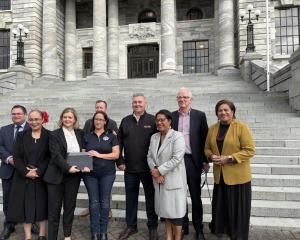Concerns about access to mental health services and an overreliance on tourism were among the issues raised in a survey of Queenstown Lakes residents.
The third annual QLDC Quality of Life was conducted by Versus Research in September and sampled 1000 residents, 70% from Queenstown and its environs and 28% from the Wanaka ward.
The survey covered cultural, social, economic and environmental aspects of wellbeing, but this year the primary objective was to understand the overall impact Covid-19 had had on residents. Report authors said the findings showed residents were not as resilient as in the survey of 2018, and it was most likely due to the impact of Covid-19.
"While those who have lost jobs are likely bearing the brunt of stress due to the unknown, findings showed that those who do still have work are not exempt from feeling anxious about the uncertain future," the report said.
The survey found the demand for mental health services had increased significantly among low income earners.
Respondents said the mental health space was "under-serviced" and there was an overwhelming perception that current available services (particularly public) were "unable to cope with demand levels".
Many respondents said Covid-19 had acted as a reset button for the tourism sector, and plans should be set in place to better manage the challenges which the tourism sector and tourists often posed.
"While it [tourism] is an important part of the Queenstown economy, it shouldn’t be the only part. This imbalance has been growing for a long time, and Covid-19 has almost brought Queenstown to its knees," one respondent said.
Others said there was a need for the district to diversify its economy instead of having a "mono-economy" based on tourism.
"As long as there is a reliance on tourism-based jobs ... there will never be large moves towards greater incomes ... to achieve an above-minimum economy, there needs to be diversity and investment ..."
In their summary, the report authors asked if the current mono-economy system had the capacity to provide an array of financially stable jobs both to current, and future residents.
"It was particularly important to consider because other findings prove that financial stability is fundamental to experiencing a high quality of life in the Queenstown district," the report said.
QLDC senior policy and performance adviser Katherine Davies, who managed the study, said the information would help build an overall picture of the district’s wellbeing.
"The study continues to prove a vital piece of the data puzzle that we have been building for the last three years.
"However, this data now gives us a baseline for recovery and helps inform our discussions with central government," Mrs Davies said.
Advertisement












